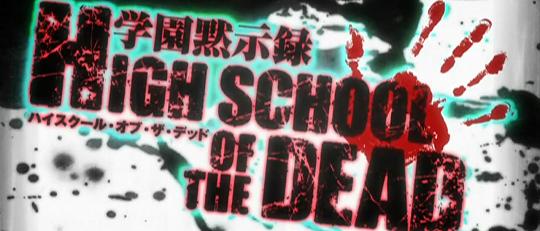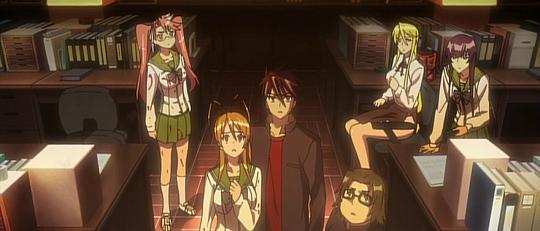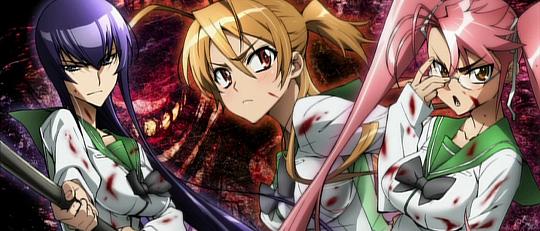High School of the Dead recently began airing and has brought the irrepressible zombie to a media which has peculiarly ignored their archetypes in favour of more culturally relevant afflictions such as demonic possession and the like. Based on the manga of the same name, in only two episodes the series has shown a remarkably sympathetic hand for including genre sensitive elements - is that the signature tune for 28 Days Later at the end of the first episode?
Widely credited with the creation of the zombie movie genre, George A. Romero's Dawn of the Dead is one of his earliest and most widely known movies and champions a lot of the situations and scenarios that High School of the Dead apes. More interestingly though, Dawn of the Dead and its mall setting is a scathing commentary on the decadent consumerism and hedonism of the period which is still just as relevant today. Like the best fantasy and sci-fi its fiction was a critique of society and culture, a relevance which very few zombie movies have managed to achieve since.
It raises the question though of just what High School of the Dead is trying to say, if anything? The most obvious is that, like Romero's mall, high school is rotten and the students are denounced as zombies. Not exactly original and simply transposes Romero's message to a new locale - it does however fit with stories regarding Japan's schools: students forced to learn by rote, memorising endless figures and trivia without any awareness or fostering of creativity, safe in the knowledge hundreds of schools across the country are being exposed to the same curriculum at the same time; the only way to survive is to succumb to the same ethos and join the shambling, mute masses.
The setting is more than just zombies in a school though, the first two episodes at least are about students trying to break free and the only way they can do that is by fighting their classmates. This triggers ideas around individuality within a strict and homogenising education system and has been explored by others through symptoms such as gangs and fashion groups. This idea unfortunately falls flat in High School of the Dead when it transpires the students which do survive long enough to band together fall neatly into defined cookie-cutter character types and their only demonstration of individuality is in the colour of their hair which can be attributed more to eager character designers rather than a rebellious attitude.
The fighting between students however is very reminiscent of Battle Royale which, like Dawn of the Dead, laced its carnage with an underlying message, in this case that high school is hell, students fighting against students where only the strong or the cunning survive. Here though, some students are fighting however the rest are devouring each other, wandering in search of their next victim in the same way a bully would looking for someone weak and out-of-place. In that sense the zombies are the normal ones, blindly taking chunks out of their fellow student until someone not ensnared by the system comes and bludgeons them over the head.
What is most fascinating though (for various reasons) is the amount of fan-service present in the series; certainly it fits in with the primal, lizard-brain combat - fighting games such as Dead or Alive and later iterations of Soul Calibur have extolled such an approach not to mention many horror movies featuring gratuitous nudity alongside deplorable violence. Continuing with the concept of fiction reflecting of reality, it says volumes that the only females to survive are curvaceous and beautiful rather than plain and uninteresting - who have no doubt already been devoured.
How the remainder of High School of the Dead pans out will be key to whether these theories and allusions hold water or whether the zombies are simply easy antagonists for a group of high school misfits. From the end of the second episode it seems likely the series will take on board the barren nihilism of an apocalypse, perhaps commenting on slices of Japanese society or as a whole rather than simply lambasting the education system. Of course, this could all be ascribing too much to an anime and manga that rides on the back of a well-trodden genre while throwing in a bevy of strumpets for eye candy while cashing in on the ebb and flow of zombie interest.



It reminds me somewhat of Spriggan in its all action attitude which is definitely not a bad thing, like you say, as long as it's kept fresh I can't see me having anything but love for it.